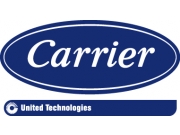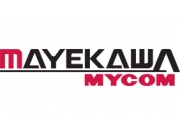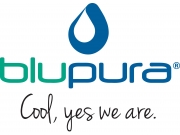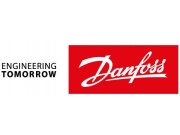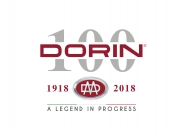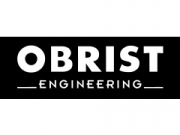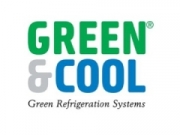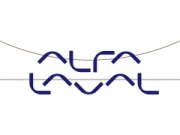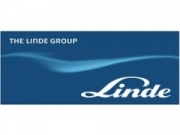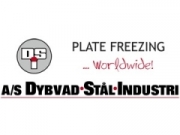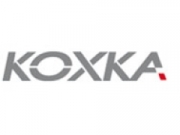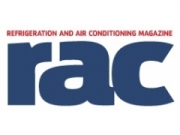Events
End Users panel 2 |
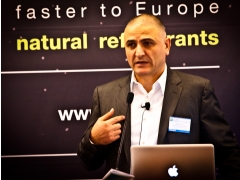 |
Antoine Azar - HFC-free refrigeration technologies in the commercial industry
PDF document
published on 12 October 2011
Coca-Cola has over 12 million vending machines, coolers and drinks dispensers around the world. With cooling equipment the greatest contributor to the Company’s carbon footprint, to reduce environmental impact the CEO of Coca-Cola made a commitment to purchase only HFC-free cooling equipment by 2015. By the end of 2011, the company will exceed the 420,000 HFC-free units placed globally, with CO2 technology as the preferred option. The biggest issue now is supply chain development and global production capacity of CO2 refrigeration components.
view presentation
 |
Paula Widdowson - Experiences and challenges in implementing Natural Refrigerants for Northern Foods and others
PDF document
published on 12 October 2011
As part of their commitment to reducing environmental impact Northern Foods works closely with indices such as Business in the Community, which ranks CSR performance and helps drive good behaviour. The company has a mixture of refrigeration equipment, responsible for 60% of the electricity costs. The factors driving change in refrigeration at Northern Foods: improving efficiency, R22 phase out, and equipment at the end of useful life. The company made an investment in a natural refrigeration plant to avoid the uncertainty associated with fluorinated gases, reducing energy use by 60%.
view presentation
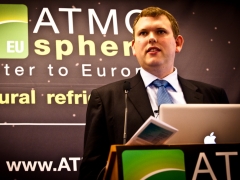 |
Thomas Lingard - Unilever's strategic decision to use natural refrigerants - past barriers and future plans
PDF document
published on 12 October 2011
The Unilever Sustainable Living Plan sets out how the company aims to double its size whilst reducing its environmental impact. By 2020 the company aims to: halve the environmental footprint of products; source 100% of agricultural raw materials sustainably; help more than one billion people take action to improve their health and well-being. For Unilever ammonia is THE sustainable refrigerant for industrial refrigeration, and since 2003 the company has started to introduce hydrocarbon freezer cabinets. By the end of 2011 Unilever will have rolled-out 800,000 cabinets. Unilever is now the chair of Refrigerants Naturally!
view presentation
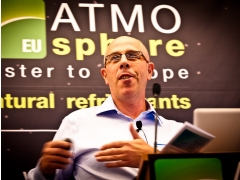 |
Neil Hughes - Cool heating: High temperature ammonia heat pump for 11 mio liters per week dairy in England
PDF document
published on 12 October 2011
Robert Wiseman Dairies is the largest fresh milk producer in the UK. Recently the company installed an innovative ammonia heat recovery unit. The ammonia heat pump provides 80°C water for the pasteurisation process replacing the need for a gas boiler. This has significantly improved the return on investment for replacing an old HFC system with a central ammonia based refrigeration plant. The installation has resulted in a reduction in gas usage of 52% and a water reduction of 50%. However, the project has not been without its challenges, such as a lack of government funding.
view presentation
Technology session 2: Case Studies |
 |
Jan Boone - Field case studies of industrial plants operating with natural refrigerants
PDF document
published on 12 October 2011
In 2001 the customer decided to replace the existing cooling-freezing plant with refrigerant R22 by a new plant with the natural refrigerants CO2 and NH3.
The ammonia parts of the plant are located in the machine room and partly on the roof (condensers). The supply of freezing on low temperature (-31°C and -51°C) shall be done with CO2.
The new plant has been completed and handed over during 2005 and has several advantages compared to a common plant with the synthetic refrigerant R507.
view presentation
 |
Klaas Visser - The world's first two stage CO2 transcritical refrigeration system at a food processing p
PDF document
published on 12 October 2011
The suggested case study deals with a world first two stage CO2 transcritical refrigeration plant project. The new two stage transcritical CO2 refrigeration plant replaces independent cooling and heating systems comprising air cooled single stage HCFC and HFC condensing units for one blast freezer, one cold store, two chillers, one process chilled water chiller and four reverse cycle AC units, six R134a air to water heat pumps, three gas fired water heaters and two sets of electric under floor and door heaters for the existing blast freezer and cold store, a total of 22 independent systems. The project was supported financially by the Australian Government’s Federal Department of Industry to the tune of 50% under the government’s commendable “Retrofitting for Climate Change” programme.
view presentation
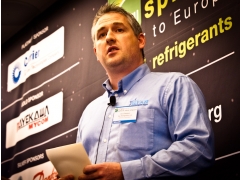 |
Dave Pearson - NH3 large heat pump at Nestle factory
PDF document
published on 12 October 2011
This case study presents results from high pressure heat pump solution using ammonia and screw compressors up to 90°C for reducing the Nestle Halifax factories refrigeration and heating energy demands. This enabled Star to comfortably take heat from the 0°C process glycol at -5°C and lift it to 60°C in one stage for heating. Nestle can save an estimated £143,000pa in heating costs, and 119,100kg in carbon emissions by using a Star Neatpump. Despite the new refrigeration plant providing both heating and cooling, it consumes £120,000 less electricity per annum than the previous cooling only plant.
view presentation
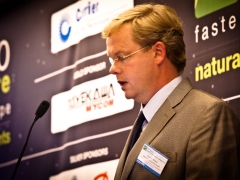 |
Gunnar Busse - New safety system for hydrocarbons in Mobile Air Conditioning
PDF document
published on 12 October 2011
The case study analyses whether hydrocarbons are an option for mobile air-conditioning if a safety system for fire prevention is integrated. The points of discussion include:
- Efficiency advantages vs. system modifications
- Charge amount reduction options
- Impact of an additional safety system
- Further measures
view presentation
